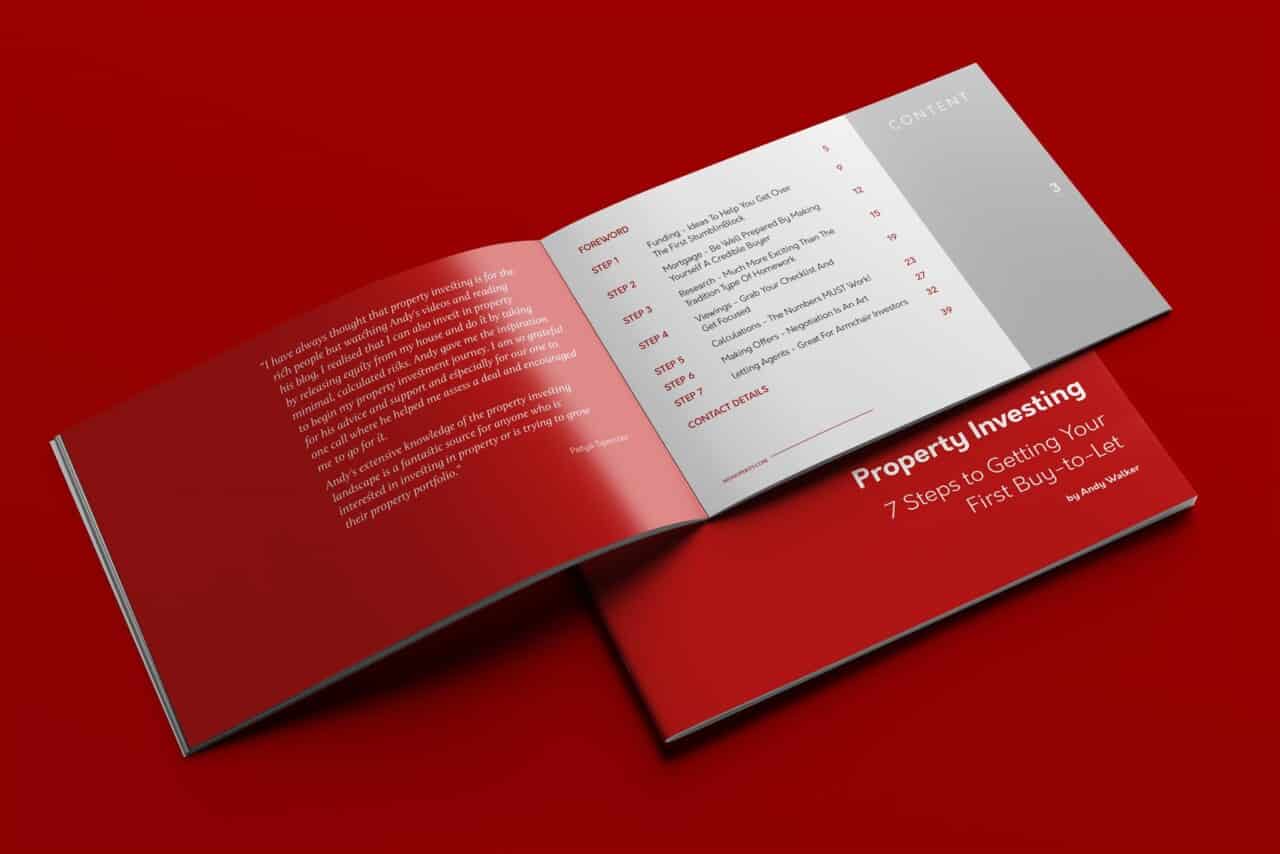There are more than 2 million landlords in the UK, a majority of which are in full time employment and have purchased a buy-to-let property to enhance their pension fund or increase their regular income.
Many of these landlords use letting agents to help them manage their property, so they spend very little time thinking about, or even getting involved, with their investment property.
Other landlords have made a career from investing and managing rental properties full time.
So does this mean that some landlords have a business and others don’t? Is buy-to-let a business?
The efforts and activities made by individuals or organisations to produce and sell goods or services for profit are classed as a business. Landlords provide a service in the Private Rented Sector (PRS) with rental properties, so therefore, buy-to-let is a business.
Some people will say – The answer is no, it’s not. You’re not running a business when you let out property to tenants, even if you have multiple properties. What you are doing is making an investment in bricks and mortar that will hopefully give you an income and grow in value over time.
However, I would like to take the time to emphasise that if you’re a landlord providing a service within the PRS in exchange for money, and the fact you need to pay taxes on your profit, you are indeed operating a business if you own a buy-to-let property.
The idea of buy-to-let not being a business and that its simply investing in bricks and mortar that will hopefully gain capital growth over time, maybe true if the property is not tenanted. But then it wouldn’t be a buy-to-let. It would just simply be an investment property.
Besides, in my experience as a landlord, you will have greater success as a landlord and property investor if you treat your buy-to-let as a business. Property is a people business. If you look after your customers (tenants) and manage your properties well, they will look after you in return.
For more details on ‘What Is A Business’, I recommend reading this article on investopedia.com.
Contents
Why Is Buy-To-Let A Good Business To Start?
Aside from the financial gains, buy-to-let is a good business to start because it offers a number of advantages.
Firstly, it is relatively low-risk providing you do your research thoroughly before making a purchase.
If you are not familiar with how to do your due diligence on a particular property, don’t worry, as you can easily learn how. Download my free 7 Step To Purchasing A Buy-To-Let Investment Property.
Other benefits to starting a buy-to-let business, compared to other types of businesses, include:
- You are providing a basic human need as everyone requires shelter.
- You can work from home.
- It is a business you can start in your spare time whilst you are in full time employment.
- You do not require any formal training or qualifications.
- You do not need to hold stock or pay for storage.
- You do not need any specialist equipment.
- You do not need to hire any employees.
For more details about why I believe buy-to-let is the best business for anyone to start, you can watch my short video. There is also an eighth point which I didn’t list above as it’s easier to explain on video:
Can You Make A Profit On Buy-To-Let?
The answer is yes, but you will need to do your research to ensure you invest in a property that has demand within the private rented sector.
In order to make a profit, you’ll need the rental income to be higher than the cost of maintenance, letting agent fees, mortgage interest payments and any other associated running costs. There are many properties available, so it’s important to find the right one that will work as a rental.
How much will it cost to purchase a buy-to-let?
To purchase a buy-to-let property you will need a deposit equivalent to 25% of the purchase price. There are some buy-to-let mortgage products that only require a 15% deposit, but you will have access to better interest rates if you have a larger deposit.
The total purchasing costs will vary depending on the property you choose, the solicitors you decide to work with, valuation services, mortgage application fees, mortgage broker fees and stamp duty.
Buying a buy-to-let property is a big decision, and it’s important to know all the costs involved before making the purchase. But you have to get started in order to find out the costs of purchasing a rental property. So take one step at a time. You do not have to commit to anything until you have all the facts and figures.
The process can take several months, so you will have plenty of time to ask questions and learn along the way.
You will also need to decide if you would prefer to hire a letting agent or market and manage the buy to let yourself.
These are important considerations to take into account before committing to purchase a buy-to-let property. Once you’ve made the decision, make sure you get started by researching your chosen area and finding a potential rental property that meets your needs and those of the market.
Is It Worth Owning A Buy-To-Let?
Yes, it is definitely worth owning a buy-to-let rental property!
There are many benefits to doing so, including the potential for a great return on investment, the ability to generate rental income, the potential for capital growth and the flexibility to choose your tenants.
Owning a rental property can provide you with a sense of security and stability, as well as the opportunity to build equity over time.
Moreover, by carefully selecting your property and location, you can minimize the risk of vacancy and maximize your chances of success.
What Is A Property Company For Buy-To-Let?
Are you thinking about investing in buy-to-let property? If so, you may be wondering whether you should do so as an individual or through a company.
There are pros and cons to both options. Investing as an individual may be simpler and more straightforward, but investing through a company can provide certain benefits, such as limited liability.
So, what is a buy-to-let property company? And what is the difference between investing as an individual and investing through a company?
A buy-to-let property company is a limited liability company that owns and rents out property. The company is responsible for the upkeep of the property and the payment of any associated expenses, such as buy to let mortgage interest, insurance, and repairs.
The main advantage of investing through a buy-to-let property company is that your personal liability is limited. This means that if the company gets into financial difficulty, your personal assets are protected.
Another advantage of investing through a company is that it can be easier to get a limited company buy-to-let mortgage.
This is because lenders often see buy-to-let companies as being less risky than individual investors.
The main disadvantage of investing through a buy-to-let property company is that it can be more expensive. This is because you will be responsible for the company’s costs, such as incorporation fees, legal fees, and accountancy fees.
You will also have to devote more time for administration. This includes setting up a property company with Companies House and keeping your records up to date.
Another disadvantage of investing through a company is that it can be more difficult to sell your property. This is because buyers may be put off by the fact that they would be buying a property from a company, rather than from an individual.
If you own your rental property through a limited company, you’ll receive your rental income differently. This is because the income belongs to the company, rather than to you personally.
There are two ways you can take this income: you can either pay yourself a salary from the company, or you can take your rental income as dividends.
Which option is best for you will depend on your individual circumstances. But either way, it’s important to remember that this income is taxable.
If you invest as an individual, you will pay income tax on the income generated. The amount of tax you will pay will depend on your current tax rate after accounting for any other forms of income you have.
So, what is the difference between investing as an individual and investing through a company?
The main difference is that investing through a company can provide certain benefits, such as limited liability, but it can also be more expensive and more difficult to sell your property.
Is It Better To Set Up A Limited Company For Buy-To-Let?
There are a number of advantages to setting up a company for buy-to-let. These include cost control and the ability to grow your portfolio more easily.
Additionally, holding properties through a limited company can offer significant tax benefits, including lower rates of corporation tax and the option to defer capital gains tax on any sale.
There are some disadvantages to setting up a buy-to-let company, of course. These include the need to devote more time and resources to running your business, and the associated risks – for example, if your properties are not performing well, you may find it difficult to justify continued investment.
So, what’s the best option for you?
The bottom line is that you need to weigh up the pros and cons of both options before making a decision. Only you can decide what’s best for you and your finances.
Conclusion
Buy-to-let is a fantastic business opportunity that has a lot of benefits for those who invest in it. I’ve been saying this for years.
By understanding the different aspects of buy-to-let and making sure you are fully informed about the costs and benefits, you can make an informed decision about whether or not this is the right business for you.
Do take the time to read through my free guide to gain a comprehensive understanding of buy-to-let before making any decisions to invest in property. You can absorb the basics in just a couple of hours, and you will be streets ahead of anyone else. Besides, you have nothing to lose by educating yourself, and everything to gain.


